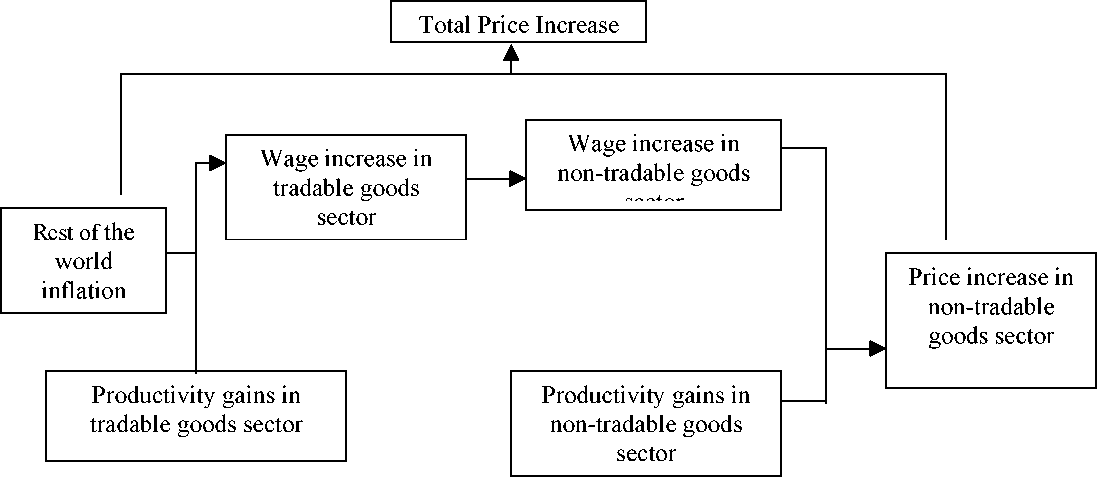William Davidson Institute Working Paper 487
Chart 1. Model of Inflation - dynamic BS affect

The stance of pre-accession economies is characterized by a number of features,
which cause many problems not only in the BS effect estimation but in its clear detection
as well. Various factors have different impact on the BS effect, making it either stronger
or weaker. Let’s point out some of them19.
First of all, the time of centrally planned economy is distinguished for the
repression and low productivity in the services sector. The labor in the sector was not
regarded as productive one20 and it was not included in the produced national income
(concept used in the socialist accounting instead of GDP). As a consequence of the
recovering of the sector during the transition, high productivity rates are evident while
the BS effect implies that productivity of the services sector does not exceed the
productivity of industries (Busson and Villa, 1996). As a whole, this transition specificity
reflects into a weaker BS effect.
19 See for example Aglietta and al. (1998), Frensch (2001), Cheung and Lai, (2000), Brada and
Kutan (2001).
20 The definitions of productive and non-productive labor were typical for the centrally planned
economy and used in Marxist terminology.
11
More intriguing information
1. The name is absent2. Deletion of a mycobacterial gene encoding a reductase leads to an altered cell wall containing β-oxo-mycolic acid analogues, and the accumulation of long-chain ketones related to mycolic acids
3. Update to a program for saving a model fit as a dataset
4. Evidence on the Determinants of Foreign Direct Investment: The Case of Three European Regions
5. Brauchen wir ein Konjunkturprogramm?: Kommentar
6. Public infrastructure capital, scale economies and returns to variety
7. Putting Globalization and Concentration in the Agri-food Sector into Context
8. Fighting windmills? EU industrial interests and global climate negotiations
9. The English Examining Boards: Their route from independence to government outsourcing agencies
10. The name is absent